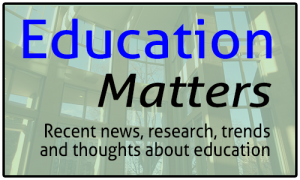Higher education has an image problem. And a trust problem.
That should come as no surprise, given the drubbing that public colleges and universities have taken from state legislatures over the past few years. They have also taken criticism from federal policy makers – along with parents and students – about costs and transparency.
 The latest sign of flagging trust comes from a national poll from the Robert Morris University Polling Institute (There was a link, but the page no longer exists) in Pittsburgh.
The latest sign of flagging trust comes from a national poll from the Robert Morris University Polling Institute (There was a link, but the page no longer exists) in Pittsburgh.
More than half of parents polled said colleges and universities weren’t staying current with the demands of the job market or maintaining strong relationships with employers. Jerry Lindsley, president of the Center for Research and Public Policy at Robert Morris, put that into some disturbing context. In a press release from the university, he said:
“Our corporate clients strive to attain overall satisfaction ratings in the high 80s. Even health insurance companies and most utilities receive positive ratings in the high 80s.”
Ouch!
Adding to the sting, the poll found that the number of Americans who rate the value of a bachelor’s degree in positive terms had dropped more than 23 points in the last 10 years, to 44.6 percent.
Not surprisingly, given the rising cost of college, Americans increasingly see a college degree in purely economic terms. An overwhelming 82 percent of those in the Robert Morris poll said job training and preparation at colleges and universities were more important than academic work.
Interestingly, students in the United Kingdom say much the same thing. In a recent poll there, students said that professional experience and training in teaching were more important in instructors than being an active researcher, The Guardian reports. Students who study more, have more contact hours with instructors, and take classes with 50 or fewer students are more satisfied with their education than other students are, the poll said.
Hunter Rawlings, president of the American Association of Universities, points out the danger of a narrow, consumerist view of education. College isn’t a commodity, he argues in an opinion piece for The Washington Post. Rather, it’s an awakening. “It’s a challenging engagement in which both parties have to take an active and risk-taking role if its potential value is to be realized.”
You can’t just buy an education, walk off with it and plug it in. Students’ success depends in large part on the work they are willing to put into that education.
“The ultimate value of college,” Rawlings writes, “is the discovery that you can use your mind to make your own arguments and even your own contributions to knowledge.”
He’s right. I’ve made that case myself. And yet those of us in higher education face an enormous challenge in making that case to students, parents and legislators who increasingly see education as a means to a very specific end, not as a process of mental development.
We have our work cut out for us.
Sage advice about non-traditional students
Jeff Fanter, vice president for enrollment, communications and marketing management at Ivy Tech Community College in Indiana, offered this excellent insight during an interview with The Evolllution:
“I firmly believe many non-traditional students come into the door of higher education with one foot outside the door at all times. If you give them a reason to take their other foot back outside the door and walk away they will.”
Briefly …
Researchers at the University of California, Irvine, will explore the influence digital text formatting has on reading abilities in middle school students, The Journal reports. … Writing in The Christian Science Monitor, Robert Reich argues that the United States needs to reinvent its entire education system. … Minnesota’s public colleges and universities will receive their full appropriation from the state legislature only if they meet several guidelines, including increasing graduation rates and job placement, Minnesota Public Radio reports.
Doug Ward is the associate director of the Center for Teaching Excellence and an associate professor of journalism. You can follow him on Twitter @kuediting.